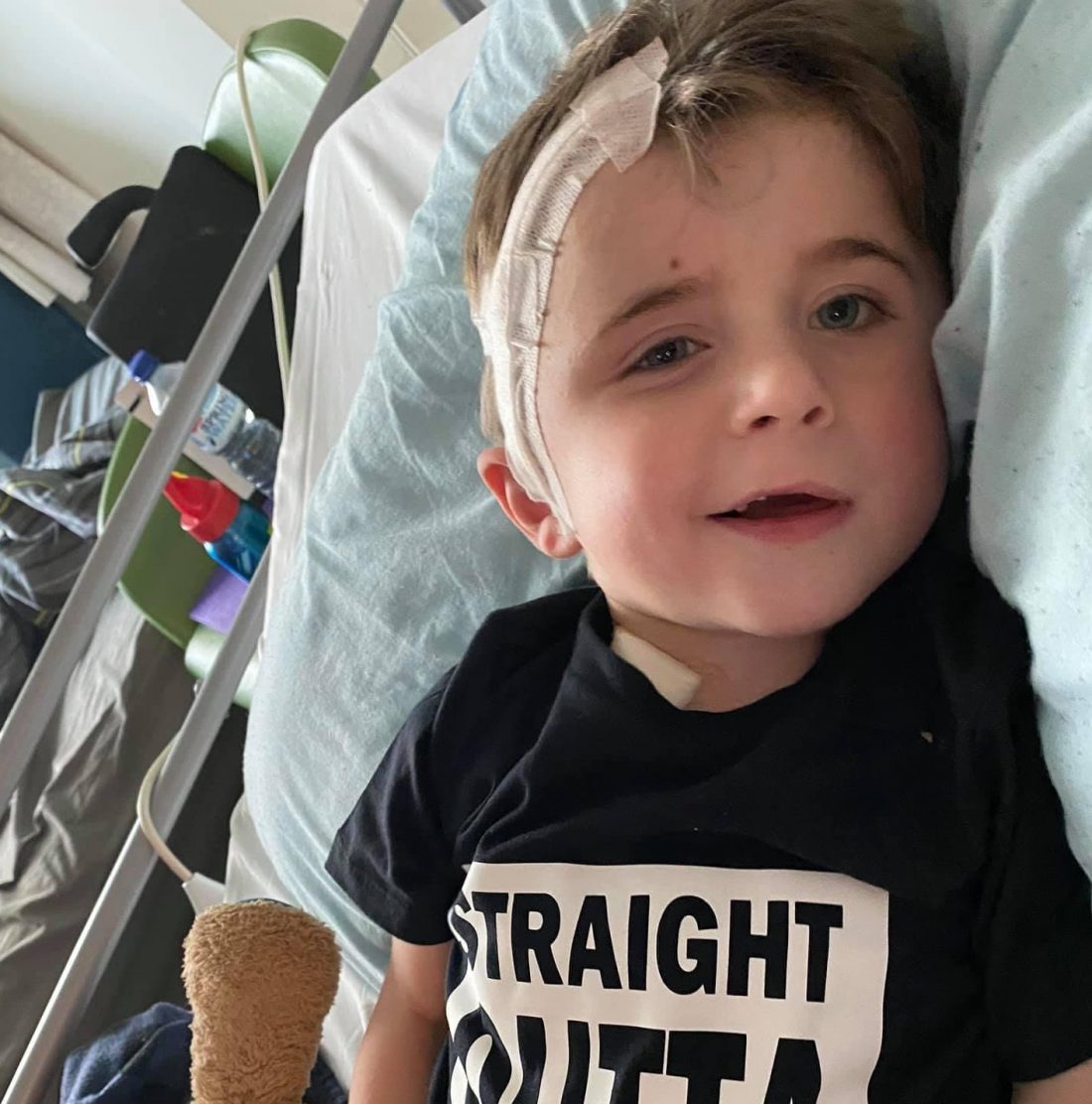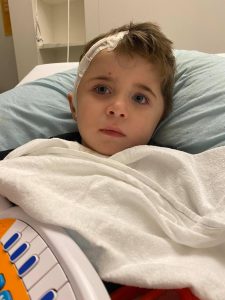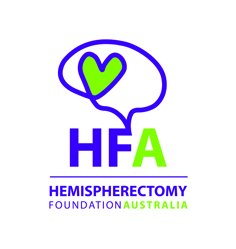
Hemi Hero: Oliver
Oliver, born in 2016, was just eight weeks old when his mother Lisa first noticed concerning symptoms in her new baby.
Hard to detect at first, Oliver began suffering short breath-holding spells that increased in frequency as he grew.
“He would hold his breath as a baby and then come around again, I saw paediatrician after paediatrician,” Lisa said.
“I was told I was being silly, that he was low in iron, but I was certain they looked like seizures.”
“We went through EEG’s which couldn’t pick it up because they were so fleeting, this went on.”
Despite Lisa’s growing concern and numerous attempts to get to the cause of these episodes it wasn’t until Oliver was 12 months old that she finally got in touch with a private paediatric neurologist who after a long EEG confirmed the spells to be seizures (infantile spasms).
“It was such a relief, we had a real path to pursue. Originally, he was diagnosed with epilepsy but when the medication didn’t work, we explored other options,” she said.
They went through several treatments, MRI tests and steroid trials with Oliver’s seizures stopping for a short period and then continuing to increase to last for periods of up to fifteen minutes at a time.
Oliver’s Cortical Dysplasia on the right side of his brain was determined to be a contributing factor, resulting in refractory epilepsy.
“We went through a lot then, it got to a point where we would have to call the ambulance because the seizures went on for so long,” she said.
Doctors found signals travelling from one side of Oliver’s brain to the other were causing the happy toddler to continuously seize – leaving him exhausted and facing recovery times of up to three hours after each episode.
In March of 2020, under the guidance of their neurologist and medical team at the Melbourne Royal Children’s Hospital the family made the major decision for Oliver to undertake a hemispherotomy, to ensure quality of life and a brighter future for their child.
Unfortunately for the young family, this was the same time COVID-19 first arrived on Australian shores, forcing them to undertake the momentous journey alone.
“We were in hospital when it all happened, just as lockdowns hit Melbourne,” Lisa said.
“It was horrific, it was myself and my husband by Oliver’s side. Your support network just couldn’t be there, it was another hurdle all together.”
“I appreciated the Hemi community at that time, there was no question we couldn’t ask from people who had been through it all before.”
24 hours after the surgery Oliver’s seizures subsided for the first time in his life. Unfortunately, they returned in a matter of days.
“His speech was back to the same level it was after the surgery, but the seizures were also still there.”
In February 2021, Oliver returned to hospital to have the surgery revised due to remaining connections. Since the surgery his seizures have returned with less frequency and with a lower intensity but have not disappeared altogether.
“It has been such a long journey; we are so thankful Oliver is such a chill and happy child.
“The physio was especially intense. We have days without a single seizure, and then can have six to eight in one day, we are not sure why now.”
“Through it all we wouldn’t go back on our decision. Its hard, you had this child who could run, jump, and climb who now has a left sided weakness and blinded in the left side of his eyes – but his quality of life has returned,” Lisa said.
Today, Oliver is a cheeky happy child who likes to spend time with the friends he has made at his special education school and his big sister Caitlin. All smiles, he works hard learning to navigate his speech delays and how to strengthen his left side.
“I think for anyone going through a journey like this it is so critical to ask questions every step of the way. Even if you think they might be silly. Even asking things like, ‘what do I bring to hospital?’ helped,” Lisa said.
“Where possible having both parents there is also a huge help. Having someone else there through the appointments and the surgery was so critical.
“Approaching it all with someone else’s point of view and having them ask questions was what helped get us though. It is about pushing and advocating for your child, don’t undervalue your voice.”

